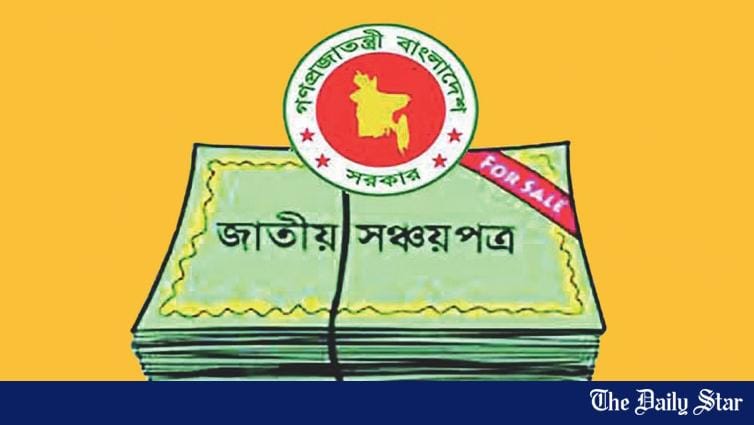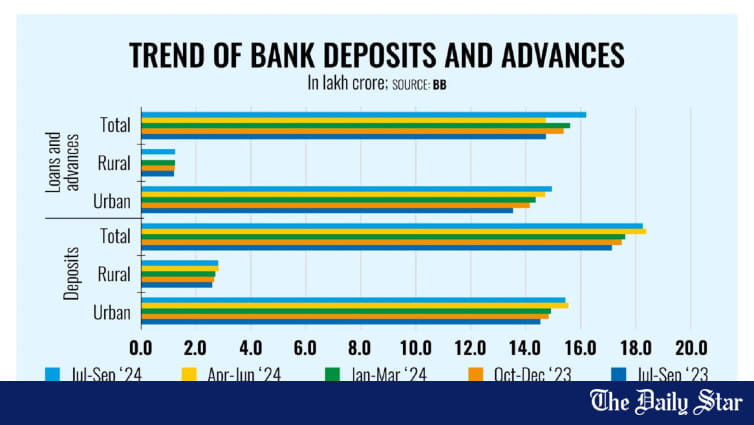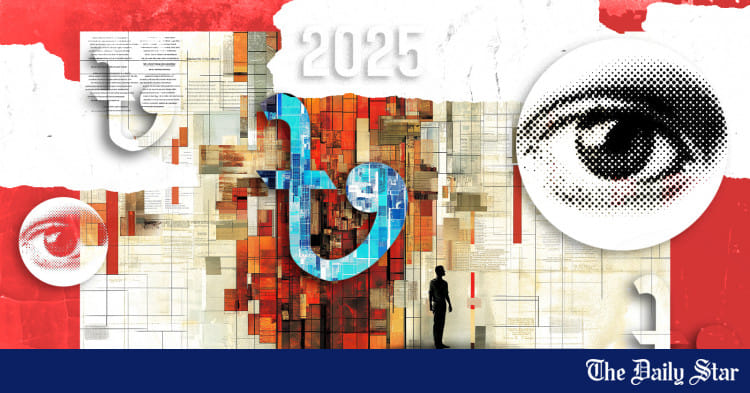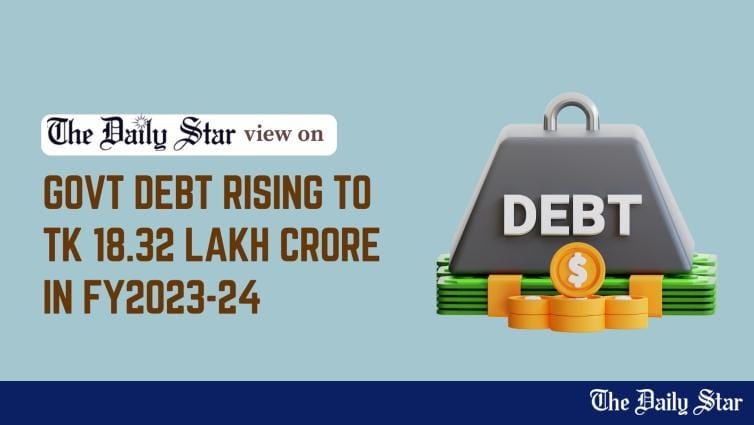Saif
Senior Member
- Jan 24, 2024
- 11,744
- 6,564
- Origin

- Residence

- Axis Group

- Copy to clipboard
- Thread starter
- #436

‘Gone are those days of subsidies, cheap money and low interest rates’: Finance adviser
Finance Adviser Dr Salehuddin Ahmed on Sunday made it clear that the government would not continue to provide subsidies and cheap money to the private sector. He also mentioned that the interim government would leave just a footprint of reform since it could not complete the reform programme withi
‘Gone are those days of subsidies, cheap money and low interest rates’: Finance adviser
FE Online Report
Published :
Jan 05, 2025 18:21
Updated :
Jan 05, 2025 19:05

Finance Adviser Dr Salehuddin Ahmed on Sunday made it clear that the government would not continue to provide subsidies and cheap money to the private sector.
He also mentioned that the interim government would leave just a footprint of reform since it could not complete the reform programme within its tenure because it would depart soon.
“They want confidence. They want assurance. They want support. They want all kinds of concessions. One thing I very clearly said, gone are those days of subsidies, cheap money, and low interest rates. These are not the signs of a competitive economy,” the finance adviser told a discussion meeting on ‘Enhancing Saudi-Bangla Economic Enhancement’ organised by the foreign ministry.
“Please don’t expect that the government will do everything,” he urged the businesspeople.
Dwelling on the policy reforms, the finance adviser said the government would not be here for a very long time.
“Our plan is to retire very soon, retire or leave very soon. But we want to leave a footprint. That is our challenge, as we cannot finish everything within one and a half year, or two years,” Dr Salehuddin said.
Citing the example of the RMG industry, Dr Salehuddin, who is also a former governor of the central bank, said that despite having started its journey long ago, the sector still wanted incentives.
Brushing aside apprehensions that foreign buyers would leave Bangladesh, he said that leading global buyers like GAP, Mark Spencer and H&M had assured him that they would remain.
He said that donors were very positive about this government and have already committed 1.6 billion dollars recently. “We are expecting another 700 million dollars soon,” he added.
Terming trade as the most important vehicle for economic development, he said that it was essential to improve bilateral trade ties with countries like Saudi Arabia for boosting the economy.
Dr Salehuddin said that the government was reviewing the timeframe for the graduation and was preparing for a soft transition.
He pointed out that the government was working to create an enabling environment for businesses and investors.
In this regard, he recalled how world-renowned companies like Saudi Aramco and Samsung were not given due importance during the previous regime, which forced them to move to other countries.
He stressed the need for correcting wrong policies to ensure a proper investment climate, saying that while the challenges in this regard were formidable, they were also surmountable.
Addressing the programme, foreign adviser Touhid Hossain said that the current government was committed to making things easier for investors.
“The government is working to create a better atmosphere and a welcoming environment for entrepreneurs,” he said.
He underscored the need for developing the skills of people before sending them to countries like the Kingdom of Saudi Arabia (KSA).
The foreign advisor noted that the same number of people could earn much greater incomes and contribute much more to the country if they were given training.
Foreign Secretary Md Jashim Uddin, who presided over the meeting, said that such discussions contribute to enhancing bilateral engagement.
Secretary (East) of the foreign ministry Nazrul Islam delivered the welcome speech in the meeting.
Saudi Ambassador in Dhaka Essa Yousef Alduhailan stressed the need for addressing challenges such as logistics bottlenecks and tariff barriers, as outlined in the report presented in the meeting.
“I also take this opportunity to reaffirm the kingdom’s unwavering commitment to supporting Bangladesh’s development aspiration and strengthening our partnership for shared prosperity,” he said
“Actually, the Saudi Bangladeshi relationship is a multi-dimensional relationship” he added, emphasising that Saudi Arabia would always stand and support Bangladesh ‘critical journey’ to become a developed country.
He noted that from 2020 to the end of 2023, more than 30 high-level visits took place, including ministerial visits and delegations.
“Over 160 Bangladeshi businessmen have visited Saudi Arabia to explore potential opportunities, with significant discussions on bilateral trade and investment”.
Expressing his government’s commitment to accommodating skilled workers from Bangladesh, he said it would provide significant economic benefits to Bangladesh.
While presenting the report at the discussion, Masrur Reaz, Chairman and the CEO of Policy Exchange, Bangladesh, said that as Saudi Arabia looks for new opportunities, Bangladesh presents several potential sectors for investment, including green energy, fertiliser, electronic manufacturing, infrastructure and logistics, petroleum refining and petrochemical products, tourism and hospitality, education and skills development, shipping lines, and construction.
These sectors offer promising avenues for Saudi Arabia to diversify its investment portfolio while contributing to the economic growth and development of Bangladesh, he added.
"Saudi Arabia is the destination for roughly 36 per cent of total overseas employment for Bangladesh, and the cumulative number of people leaving for KSA has roughly doubled since 2016.
"Saudi Arabia has long ranked as the largest origin of official remittances to Bangladesh, and it [Bangladesh] is the 7th largest recipient of remittances, with higher employment from KSA.”
“Despite these challenges, Saudi Arabia remained a dominant source of remittance income for Bangladesh,” he said, adding that these substantial inflows from key countries highlight the critical role of the Bangladeshi diaspora in bolstering the national economy, emphasising the importance of remittances for household incomes and overall economic stability.
He recommended an improvement in regulatory environment for businesses through modernising archaic laws, including the Companies Act, Bankruptcy Act, and tax policies.
He also suggested strengthening contract enforcement (ADR), faster disposal of commercial cases, business taxation, and strengthening regulatory governance through the introduction of systematic tools such as RIA.
The report recommended strengthening export competitiveness through broad-based global value chain capabilities.
It also advised reducing average rates of protection, harmonising tariff schedules across all intermediate and final goods, adopting a national environmental and social compliance framework and implementing efficient trade facilitation.
FE Online Report
Published :
Jan 05, 2025 18:21
Updated :
Jan 05, 2025 19:05
Finance Adviser Dr Salehuddin Ahmed on Sunday made it clear that the government would not continue to provide subsidies and cheap money to the private sector.
He also mentioned that the interim government would leave just a footprint of reform since it could not complete the reform programme within its tenure because it would depart soon.
“They want confidence. They want assurance. They want support. They want all kinds of concessions. One thing I very clearly said, gone are those days of subsidies, cheap money, and low interest rates. These are not the signs of a competitive economy,” the finance adviser told a discussion meeting on ‘Enhancing Saudi-Bangla Economic Enhancement’ organised by the foreign ministry.
“Please don’t expect that the government will do everything,” he urged the businesspeople.
Dwelling on the policy reforms, the finance adviser said the government would not be here for a very long time.
“Our plan is to retire very soon, retire or leave very soon. But we want to leave a footprint. That is our challenge, as we cannot finish everything within one and a half year, or two years,” Dr Salehuddin said.
Citing the example of the RMG industry, Dr Salehuddin, who is also a former governor of the central bank, said that despite having started its journey long ago, the sector still wanted incentives.
Brushing aside apprehensions that foreign buyers would leave Bangladesh, he said that leading global buyers like GAP, Mark Spencer and H&M had assured him that they would remain.
He said that donors were very positive about this government and have already committed 1.6 billion dollars recently. “We are expecting another 700 million dollars soon,” he added.
Terming trade as the most important vehicle for economic development, he said that it was essential to improve bilateral trade ties with countries like Saudi Arabia for boosting the economy.
Dr Salehuddin said that the government was reviewing the timeframe for the graduation and was preparing for a soft transition.
He pointed out that the government was working to create an enabling environment for businesses and investors.
In this regard, he recalled how world-renowned companies like Saudi Aramco and Samsung were not given due importance during the previous regime, which forced them to move to other countries.
He stressed the need for correcting wrong policies to ensure a proper investment climate, saying that while the challenges in this regard were formidable, they were also surmountable.
Addressing the programme, foreign adviser Touhid Hossain said that the current government was committed to making things easier for investors.
“The government is working to create a better atmosphere and a welcoming environment for entrepreneurs,” he said.
He underscored the need for developing the skills of people before sending them to countries like the Kingdom of Saudi Arabia (KSA).
The foreign advisor noted that the same number of people could earn much greater incomes and contribute much more to the country if they were given training.
Foreign Secretary Md Jashim Uddin, who presided over the meeting, said that such discussions contribute to enhancing bilateral engagement.
Secretary (East) of the foreign ministry Nazrul Islam delivered the welcome speech in the meeting.
Saudi Ambassador in Dhaka Essa Yousef Alduhailan stressed the need for addressing challenges such as logistics bottlenecks and tariff barriers, as outlined in the report presented in the meeting.
“I also take this opportunity to reaffirm the kingdom’s unwavering commitment to supporting Bangladesh’s development aspiration and strengthening our partnership for shared prosperity,” he said
“Actually, the Saudi Bangladeshi relationship is a multi-dimensional relationship” he added, emphasising that Saudi Arabia would always stand and support Bangladesh ‘critical journey’ to become a developed country.
He noted that from 2020 to the end of 2023, more than 30 high-level visits took place, including ministerial visits and delegations.
“Over 160 Bangladeshi businessmen have visited Saudi Arabia to explore potential opportunities, with significant discussions on bilateral trade and investment”.
Expressing his government’s commitment to accommodating skilled workers from Bangladesh, he said it would provide significant economic benefits to Bangladesh.
While presenting the report at the discussion, Masrur Reaz, Chairman and the CEO of Policy Exchange, Bangladesh, said that as Saudi Arabia looks for new opportunities, Bangladesh presents several potential sectors for investment, including green energy, fertiliser, electronic manufacturing, infrastructure and logistics, petroleum refining and petrochemical products, tourism and hospitality, education and skills development, shipping lines, and construction.
These sectors offer promising avenues for Saudi Arabia to diversify its investment portfolio while contributing to the economic growth and development of Bangladesh, he added.
"Saudi Arabia is the destination for roughly 36 per cent of total overseas employment for Bangladesh, and the cumulative number of people leaving for KSA has roughly doubled since 2016.
"Saudi Arabia has long ranked as the largest origin of official remittances to Bangladesh, and it [Bangladesh] is the 7th largest recipient of remittances, with higher employment from KSA.”
“Despite these challenges, Saudi Arabia remained a dominant source of remittance income for Bangladesh,” he said, adding that these substantial inflows from key countries highlight the critical role of the Bangladeshi diaspora in bolstering the national economy, emphasising the importance of remittances for household incomes and overall economic stability.
He recommended an improvement in regulatory environment for businesses through modernising archaic laws, including the Companies Act, Bankruptcy Act, and tax policies.
He also suggested strengthening contract enforcement (ADR), faster disposal of commercial cases, business taxation, and strengthening regulatory governance through the introduction of systematic tools such as RIA.
The report recommended strengthening export competitiveness through broad-based global value chain capabilities.
It also advised reducing average rates of protection, harmonising tariff schedules across all intermediate and final goods, adopting a national environmental and social compliance framework and implementing efficient trade facilitation.
















